“Does Rubbing Alcohol Kill Mold?” is a question that often pops up, when mold makes an unwelcome entry into our homes!
As the old saying goes, “A stitch in time saves nine”, this applies here as alcohol can be a viable solution at times, but there are also other sides to this issue.
Let’s get into more insights to check on how rubbing alcohol kills mold, its downsides, and also the other best alternatives to deal with mold growth.
What Exactly Is Mold?
By wavehooksBefore getting into the answer to the question: ‘Will rubbing alcohol kill mold’, let’s find out what mold actually is.
Mold is a type of fungus that mainly loves damp and cozy warm environments.
This thing won’t stay alone but timely it starts releasing tiny spores into the air which can grow on any surface in close contact.
Mold can create allergies and also respiratory problems and dealing with it and eliminating is equally important.
Suggested Read: Does Sunlight Kill Mold: How Well Is Sunlight Against Mold?
Does Rubbing Alcohol Kill Mold: Nut Graf
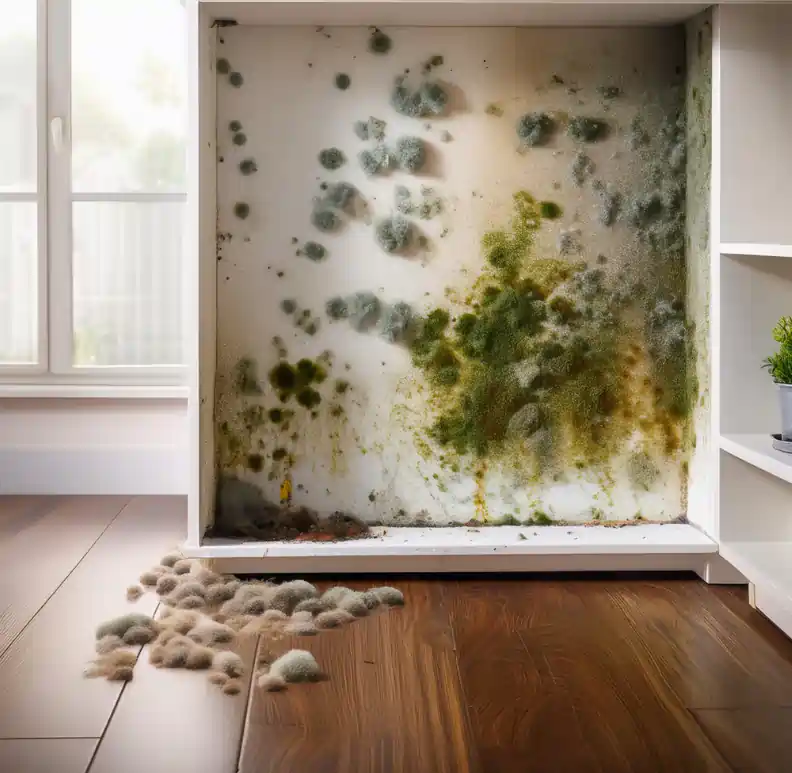
Not Completely! Though alcohol shows some effect on mold growth, it’s not an effective solution for large mold infestations.
Alcohol usually enters into the mold’s surface and breaks down its structure, making it a quick solution to reduce the impact for instance.
As the alcohol rub is neutral in pH, this lacks the chemical power to disinfect the area.
The better alternative would be a strong mold remover or professional help.
Always be cautious while dealing with mold and also maintain proper ventilation to get away with it.
Suggested Read: Top 10 Strategies On How to Keep Shower Curtain From Molding.
How Does Rubbing Alcohol Kill Mold?
Basically, an Alcohol rub can denaturalize the protein and the dissolving lipids, which are the effective agents required for mold growth.
When they come into contact with strong alcohol they can dissolve these elements can reduce mold growth.
This phenomenon can sometimes even kill mold spores and make the surface more dry.
Suggested Read: Is Water Dripping From AC Dangerous? Here’s What To Know!
Does Rubbing Alcohol Kill Mold: Best Ways To Follow!
If you’ve decided to give rubbing alcohol a shot, here’s how to do it right:
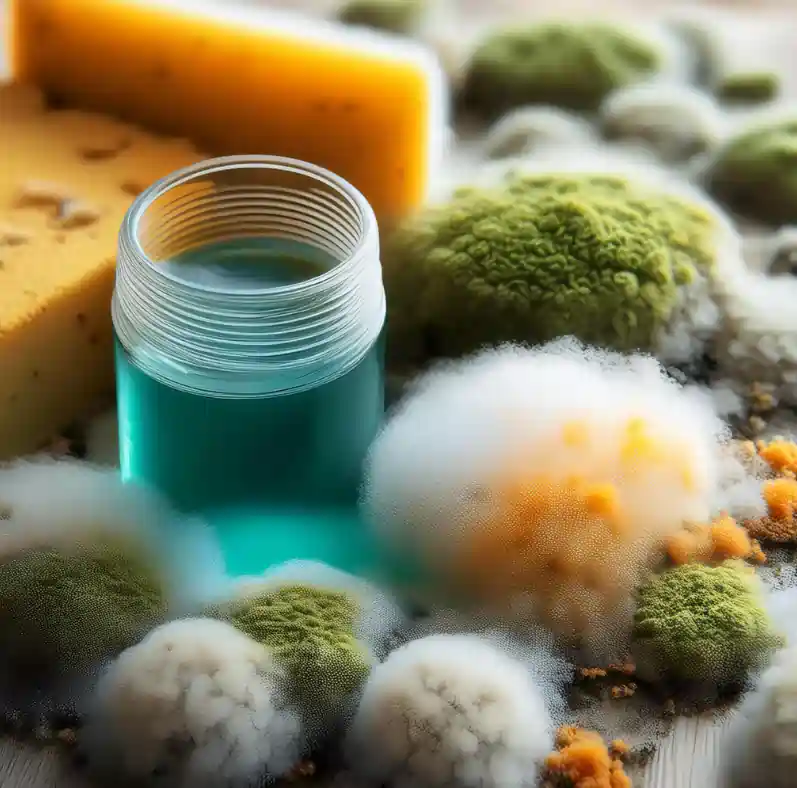
1. Maintain Safety: Make sure the affected area is well-ventilated, as rubbing alcohol can sometimes turn to produce strong fumes. Wear safety gear to avoid impact on the skin.
2. Prep the Surface: You can clean the surface with mild soap and remove the excess dirt and debris. This can ensure the alcohol can affect the mold directly.
3. Apply the Alcohol: Try to soak a soft cotton or wool and apply it on the moldy area. Let it sit for 10-15 minutes to make sure it dries out the life from mold.
4. Use Scrub To Fade: After the alcohol settles in, you need to scrub the area with a gentle brush to remove the excess mold.
5. Wipe and Dry: You can simply wipe down the area with a clean cloth and let it dry to prevent further growth.
Suggested Read: How To Remove Water Stains From Marble: 12 Brilliant Tricks!
When Not to Use Rubbing Alcohol?
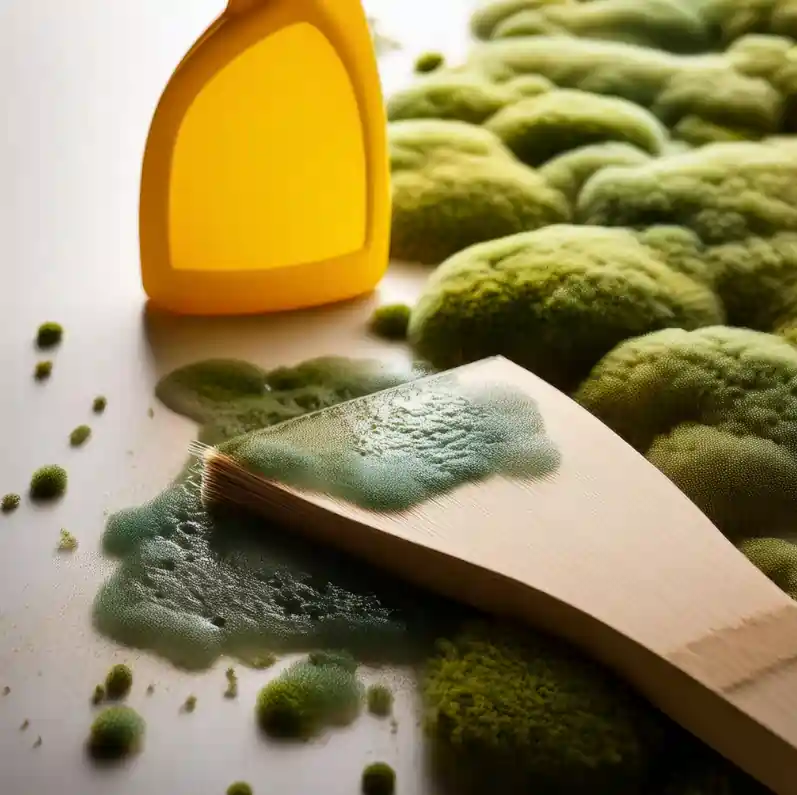
Rubbing alcohol is not the direct go-to solution to deal with the mold infestation in your home. Here are the strict instances where you need to think twice before using it on mold:
1. Porous Surfaces: Rubbing alcohol on the porous surfaces won’t reach the main roots of the mold growth, but can also damage the surface!
2. Large Infestations: If the mold growth takes the next turn and runs all across the home, conducting the alcohol methods won’t kill mold as this needs a comprehensive approach.
3. Health Concerns: If you are prone to dust allergies, and breathing issues, getting close to the mold to deal with alcohol is highly non recommended.
Suggested Read: How To Make Your Bathroom Smell Like A Spa: 20+ ‘Scent’-Sational Ways.
Other Alternatives To Rubbing Alcohol For Mold Removal
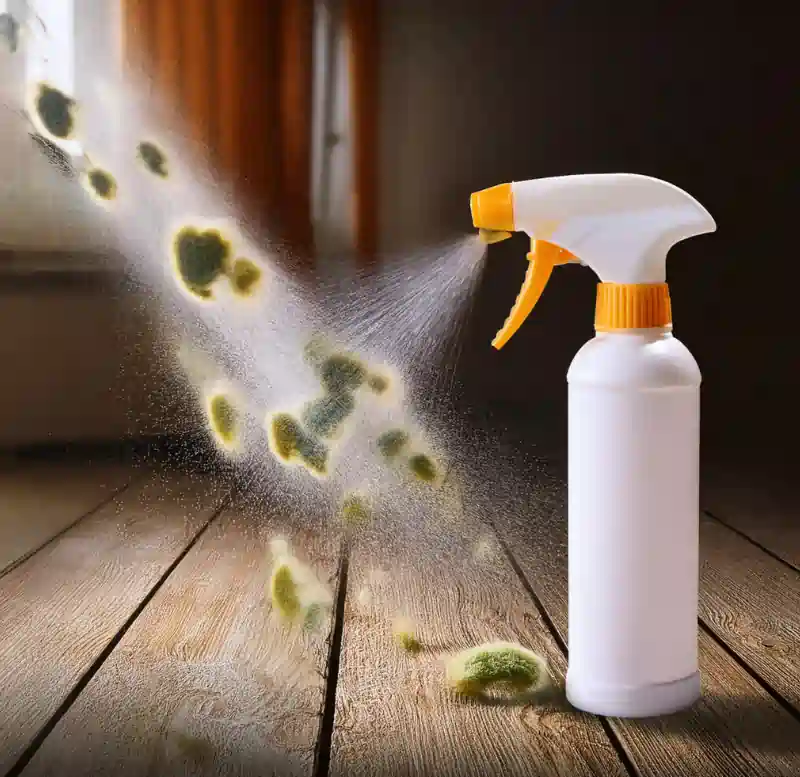
1. Bleach To Fight Mold
Bleach is a powerful ingredient to fight against mold. This acts as a disinfectant and works very well on the non-porous surfaces.
However, this is not effective on the porous material and can have a strong odor.
2. Vinegar For Mold
Vinegar comes as a natural alternative for alcohol on the mold.
This is less harsh when compared to the alcohol and the bleach making it a safe option for your pets and the children.
3. Hydrogen Peroxide
Hydrogen Peroxide is another good option than alcohol on mold.
This can be effective on non-porous as well as porous surfaces and can be less toxic than alcohol/bleach.
4. Baking Soda
Baking soda is the best scrubbing agent and can help to neutralize the mold by deodorizing the affected area.
This cannot prevent the mold but can surely work effectively to subdue the impact by making the surface safe.
Suggested Read: How To Get Lip Gloss Out Of Clothes: 9 Magic Fixes You Love!
How To Prevent Mold Growth: 4 Best Tips To Follow!
Here are a few simple techniques you need to follow to prevent mold growth in your home:
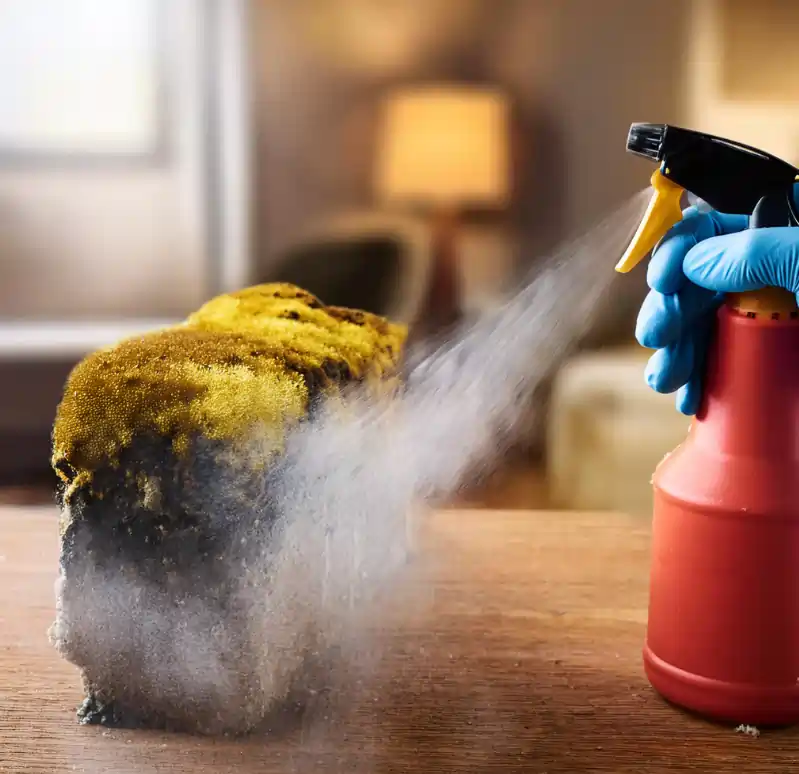
Before rubbing alcohol to kill mold you need to do, some basic things to deal with this persisting problem.
1. Contro Humidity: You need to contain the humidity in your homes, the ideal level for this is less than 60%, and use the dehumidifiers if required.
2. Fix Any Leaks: Fix any leaks in your home, whether it be windows, pipes, or all. As these spaces can be the ideal breeding grounds for mold.
3. Maintain Ventilation: As sunlight can kill mold, you need to maintain proper ventilation and deal with less moisture on the surfaces.
4. Clean Regularly: Hygiene is very important, clean your home regularly and pay attention to the areas where there is scope for the water to accumulate.
5. Dry Wet Areas Quickly: Never leave the water unattended for more than 24 hours, this can help to contain the mold to grow.
Suggested Read: How To Clean Polyester Couch: 16 Best Methods You Can Trust!
does isopropyl alcohol kill fungus?
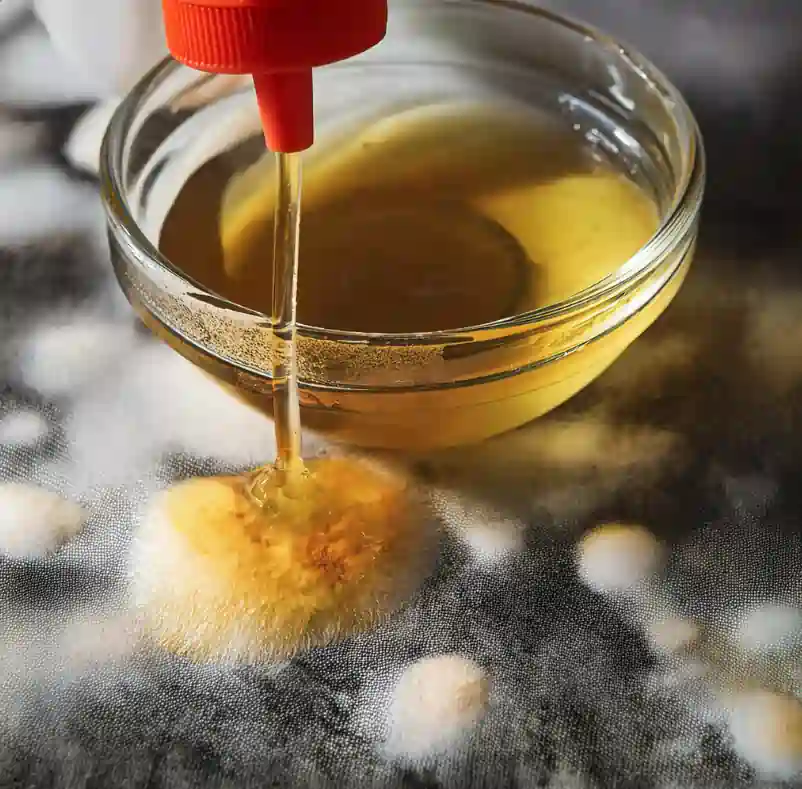
While Isopropyl with a concentration level of 70% works as a very good disinfectant, but it can not eradicate the mold.
The 70-90% Isopropyl can only take the excess oil and the dirt due to the neutral pH nature of 6 on an acidic scale.
In some cases, this concentration level can destroy the cell walls of the mold growth and prevent the spread.
Suggested Read: How To Get Tattoo Ink Out Of Clothes: 15 Verified Methods!
Does rubbing alcohol kill mold spores?
Rubbing alcohol can reduce mold spores but cannot kill mold spores.
This isn’t a viable solution if you are looking to completely eradicate the mold spots.
What kills mold permanently?
To kill mold permanently, use bleach, vinegar, hydrogen peroxide, baking soda, or borax on affected areas.
Bleach and 3% Hydrogen Peroxide are effective on non-porous regions. Vinegar and baking soda acts well on porous surfaces.
Suggested Read: How To Get Rid Of Fruit Flies In Apartment: 13 Simple Tricks
Frequently Asked Questions: Does Rubbing Alcohol Kill Mold?
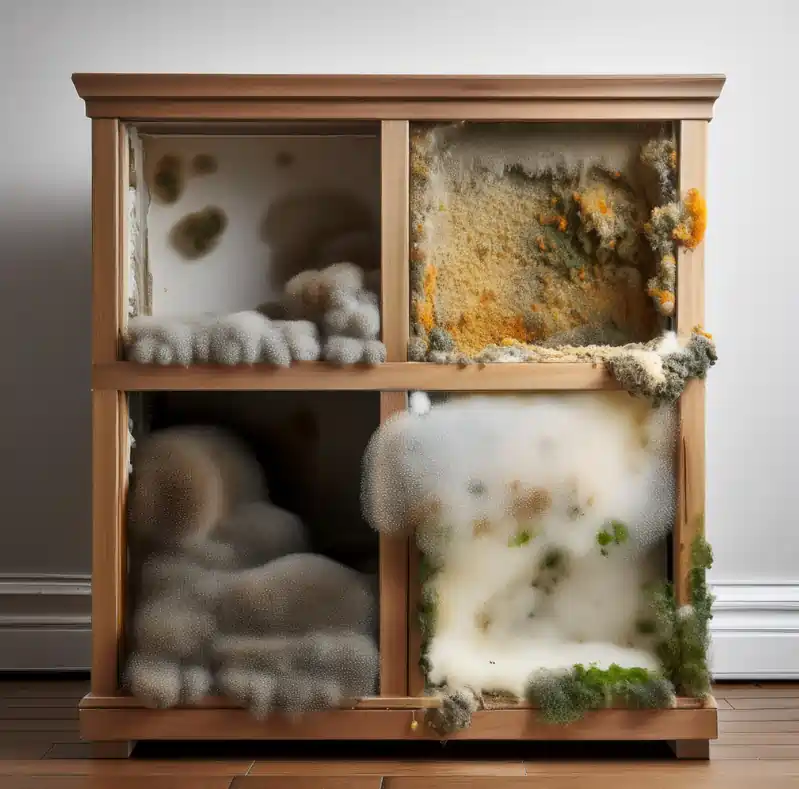
1. does hydrogen peroxide kill mold?
Yes! Hydrogen Peroxide with a concentration level of 3% can show remarkable results on mold growth.
2. does rubbing alcohol kill black mold?
Rubbing alcohol can kill black mold on hard, non-porous surfaces. However, this is not effective in all cases as it cannot penetrate porous surfaces.
3. does rubbing alcohol kill mold on wood?
Rubbing alcohol can contain mold growth on the wood, but it cannot completely kill or eliminate the mold rooted deep in the wood.
4. does rubbing alcohol kill mold on fabric?
Rubbing alcohol can kill mold on fabric, but it can leave deep stains on the cloth. It can also work as a disinfectant and prevent further mold growth.
5. Does drinking alcohol kill mold?
No! Drinking alcohol does not kill mold, this needs some specific mold-containing agents and quality treatment to effectively remove!

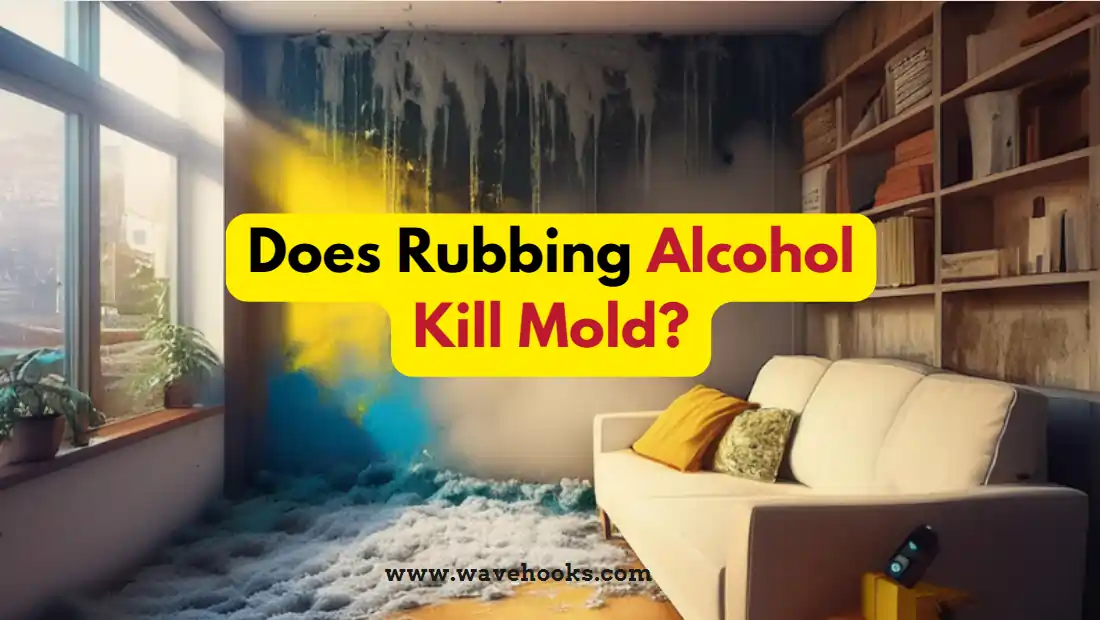
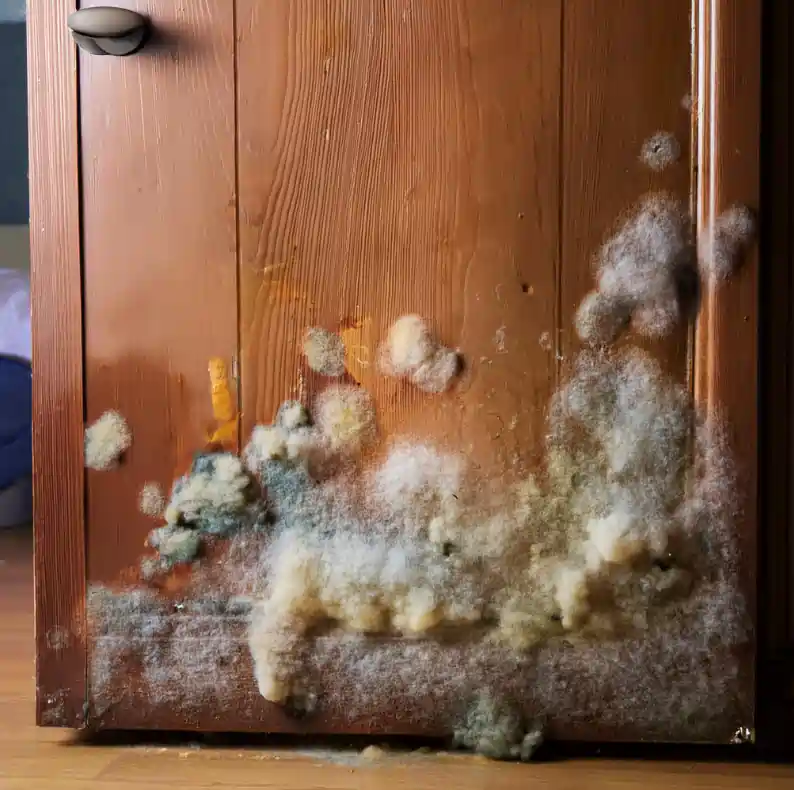


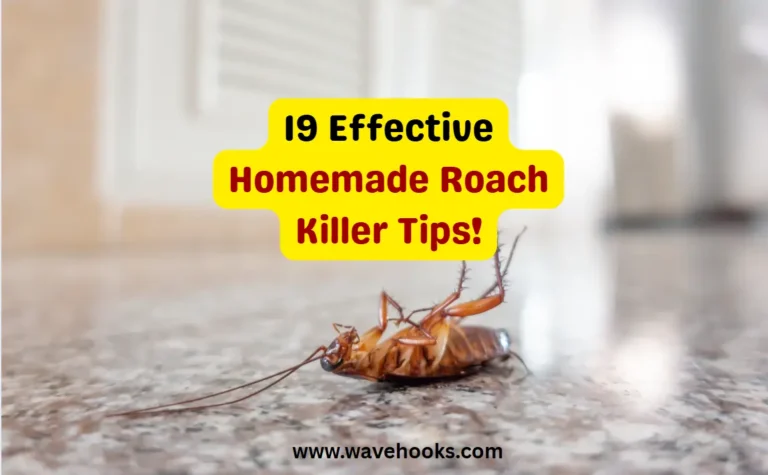



3 Comments